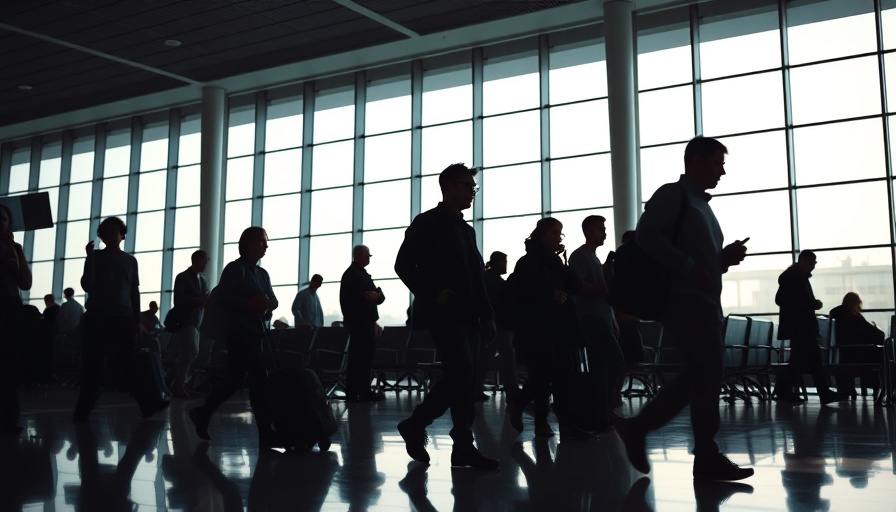
Economic Shifts Prompt Airlines to Reduce Flights
As the summer travel season approaches, airlines are making significant adjustments to their flight schedules, citing diminishing consumer confidence and ongoing tariff disputes. This decision, however, raises questions about the future of the travel industry and how economic indicators shape airline operations now more than ever.
The Importance of Consumer Confidence
Recent fluctuations in consumer confidence are impacting travel decisions across the nation. With economic uncertainty particularly observable in various sectors, including trade, many potential travelers are reconsidering their plans. Factors such as rising costs and potential tariffs on airline goods contribute to this shift. The Consumer Confidence Index reflects a growing concern, indicating that if consumers feel uneasy about their finances, they are likely to forgo travel plans, resulting in airlines cutting back their offerings.
Tariffs Affecting the Travel Landscape
Tariff concerns extend beyond mere ticket prices; they affect the broader supply chain within the airline industry. Increased import tariffs on aircraft components mean airlines face higher operational costs, prompting them to streamline routes and capacities. The American Airlines and Delta, two of the largest carriers in the United States, are among those reducing summer flight frequencies, underscoring how global trade tensions have a direct impact on consumer travel.
A Parallel Example: Historical Context of Airline Adjustments
Historically, airlines often react to economic pressures with capacity cuts. Following the 2008 financial crisis, many companies adopted similar measures, adjusting flight schedules based on market confidence. This historical precedent shows a pattern where airlines align operational decisions with broader economic indicators, and today's environment appears no different.
Future Predictions: What Lies Ahead for Air Travel?
Looking ahead, experts predict that if these economic concerns persist, airlines might need to innovate or adapt by incorporating more flexible booking policies or enhancing customer experience to attract hesitant travelers. The combination of economic uncertainty and competitive pricing strategies will likely dictate how airlines respond, possibly leading to a more cautious approach to expanding travel options.
Understanding Consumer Behavior in Travel
It’s essential to consider how consumer perceptions shape the travel market. With myriad options available, consumers can easily shift their preferences based on perceived value. As airlines cut flights, a crucial opportunity arises for emerging low-cost carriers to capitalize on this gap by offering alternatives that appeal to price-sensitive travelers.
What Can Travelers Do?
For consumers contemplating summer travel, staying informed is key. Potential travelers should monitor fluctuations in airlines’ flight offerings and take advantage of flexible booking options. Additionally, knowing when and where to travel during off-peak times can lead to significant savings.
The Emotional Aspect: Why Travel Matters
Ultimately, traveling is not just about logistics; it’s a matter of connection and experience. Understanding why travel matters amidst economic downturns can remind all of us of the emotional and mental benefits of exploring new places and cultures. This aspect can motivate people, even during tough financial times, to prioritize travel experiences.
Conclusion: Take Action
In light of these insights, staying proactive in planning travel is paramount. Travelers should assess their financial situation and flexibility while remaining vigilant about industry changes. As airlines navigate uncertain waters, consumers will benefit by being prepared and informed.
 Add Element
Add Element  Add Row
Add Row 



 Add Row
Add Row  Add
Add 


Write A Comment